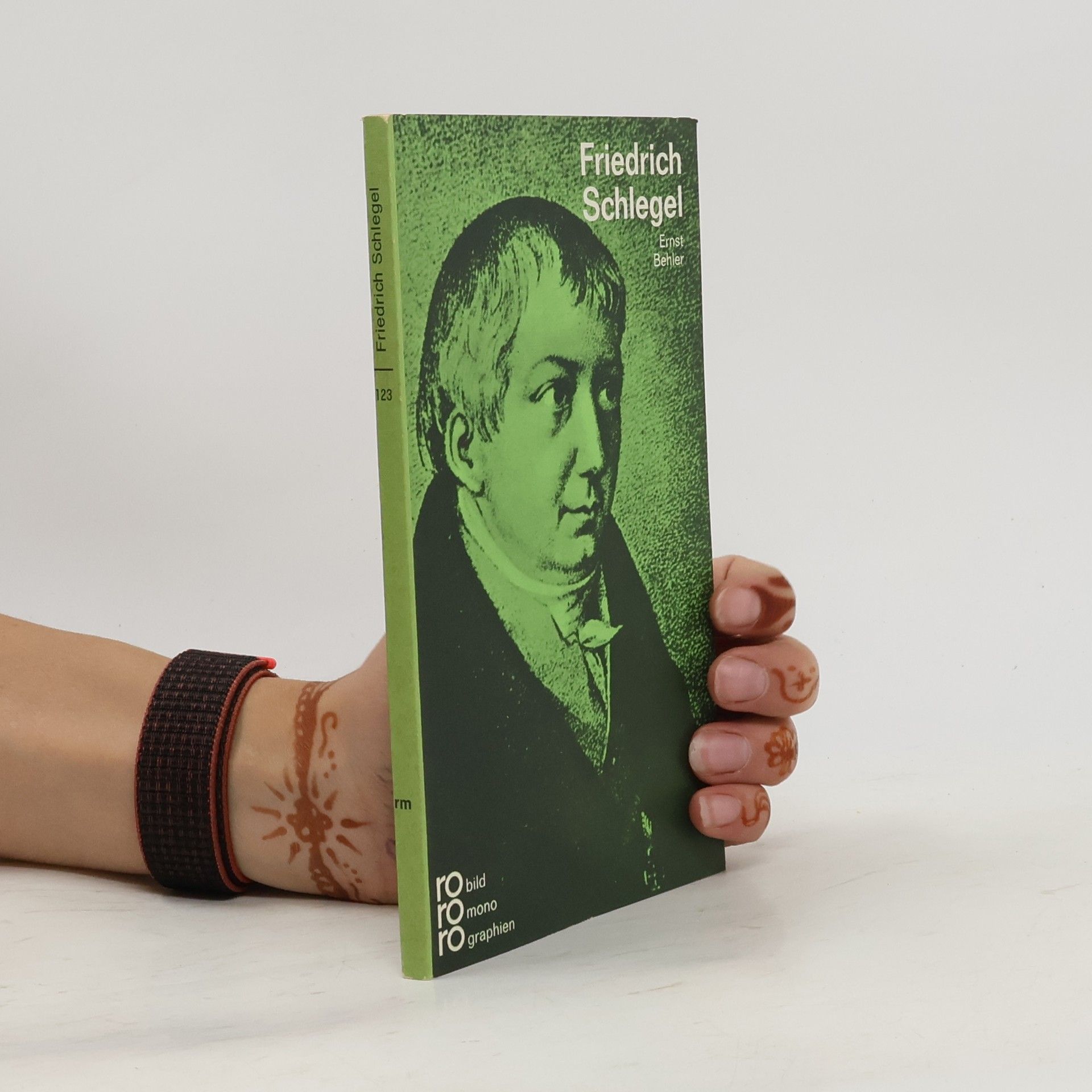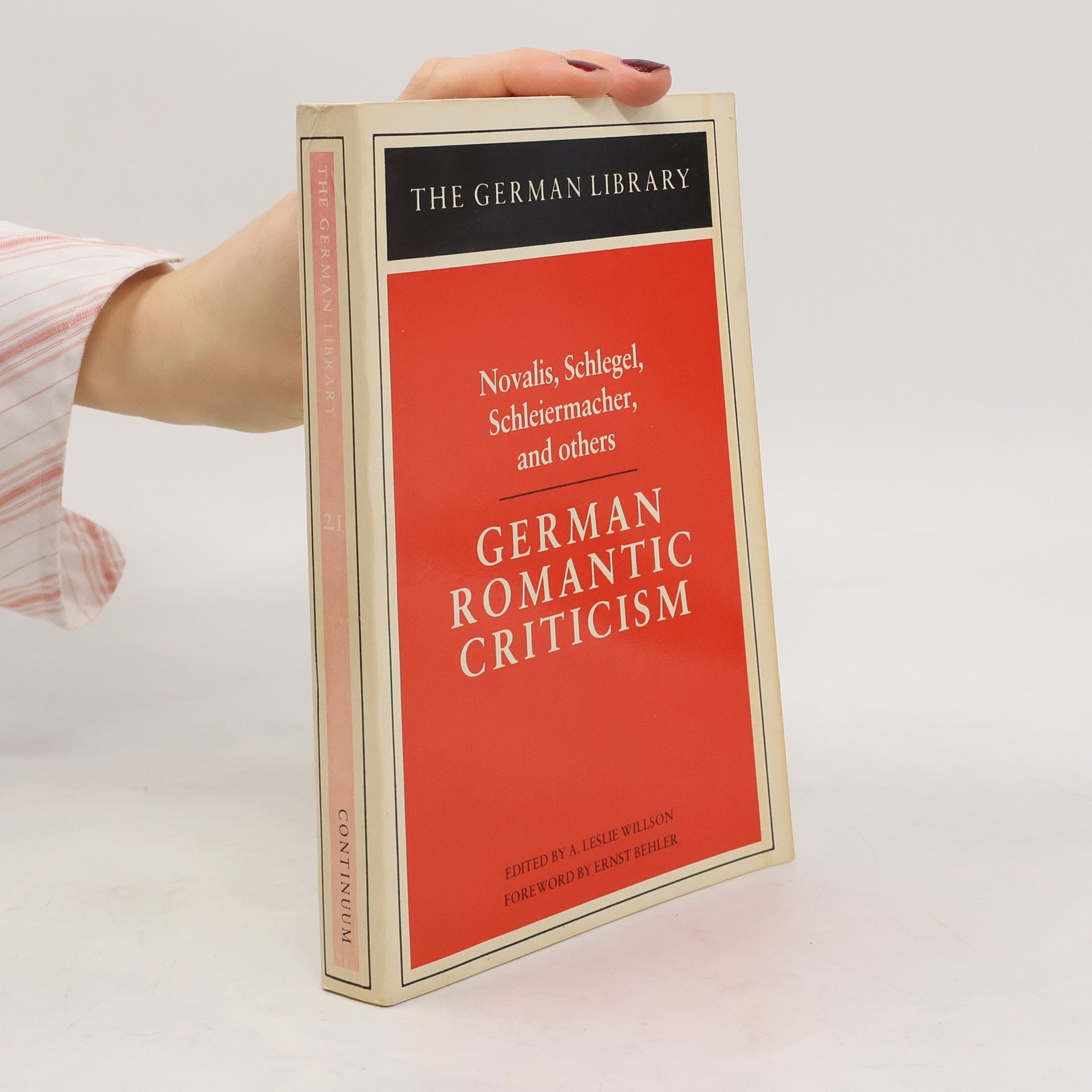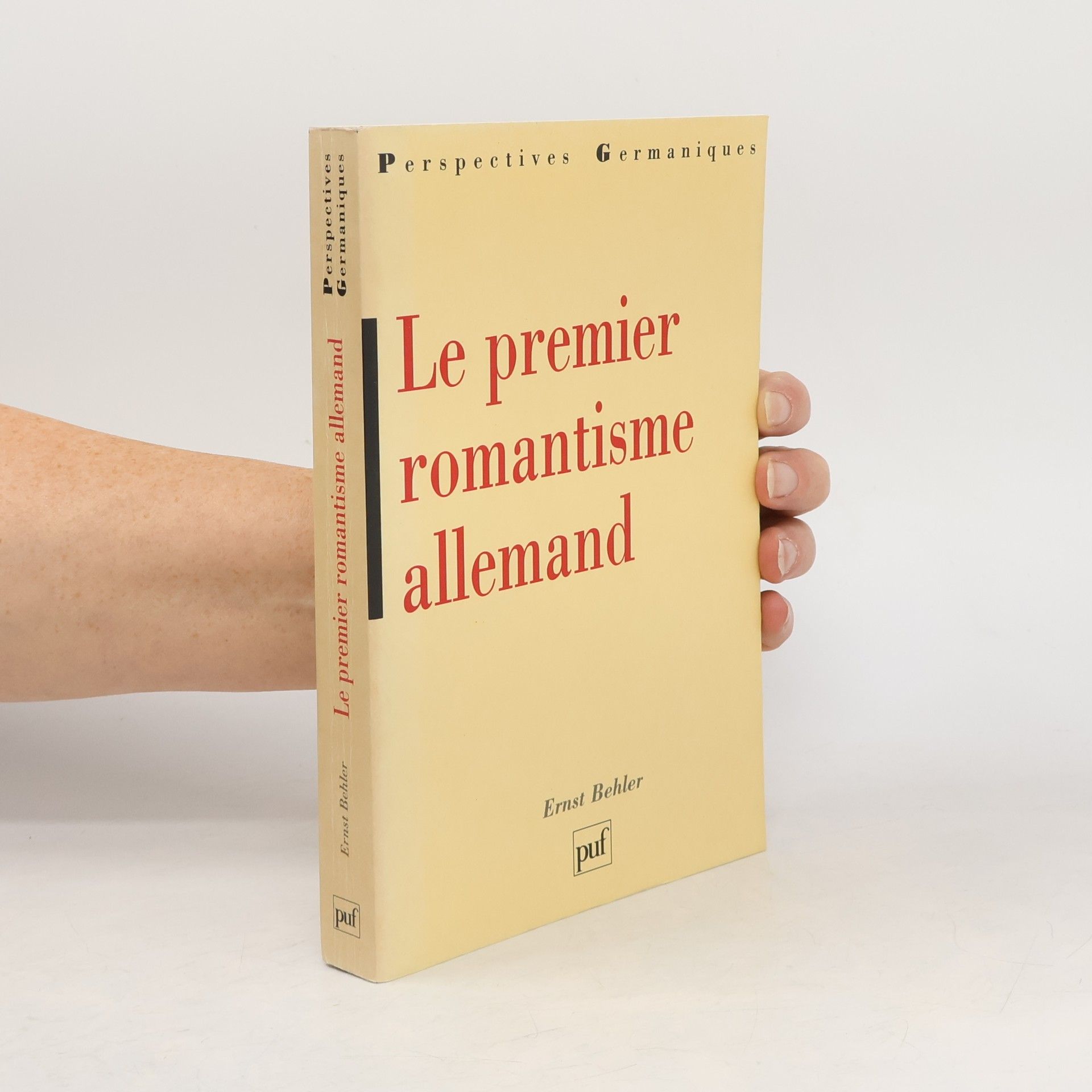Le premier romantisme allemand
- 288pages
- 11 heures de lecture






Professor Behler provides a view of the literary work and the artistic process developed in the German Romantic period.
Novalis, Schlegel, Schleiermacher, and others
Includes: Schleiermacher's "On the Different Methods of Translation;" Jean Paul's "School for Aesthetics;" Novalis's "Aphorisms and Fragments;" Schlegel's "Dialogue on Poetry and Lectures on Dramatic Art and Literature;" Holderlin's "On the Process of the Poetic Mind;" von Kleist's "On the Marionette Theater;" Muller's "Twelve Lectures on Rhetoric;" von Humboldt's "On the Imagination;" Gorres's "The German Chapbooks;" and Grimm's "On The Origin of Language."